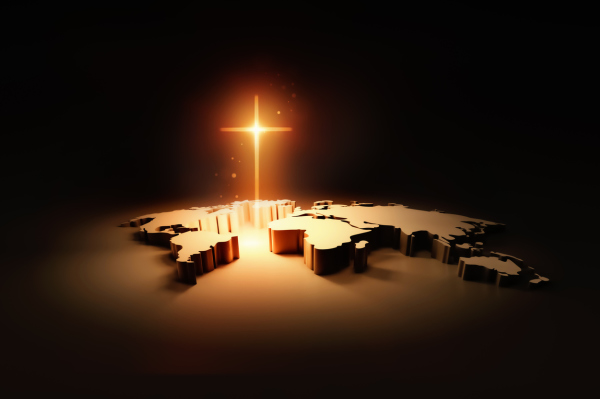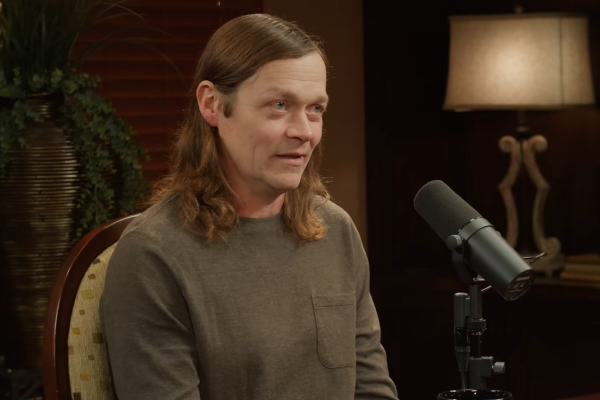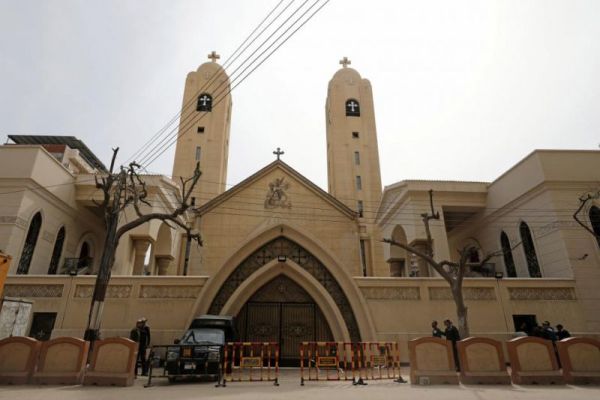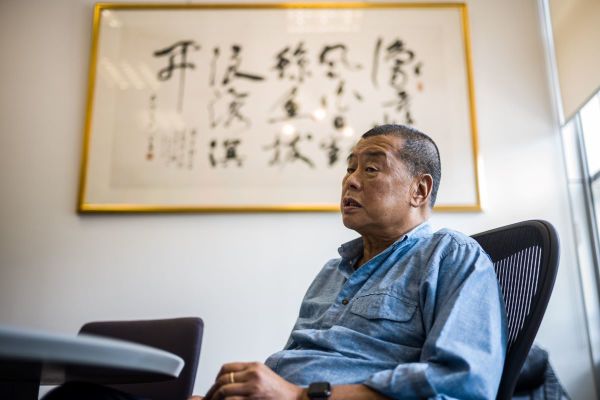Bishops react to The Episcopal Church requiring all diocese to officiate same-sex weddings, even if they oppose
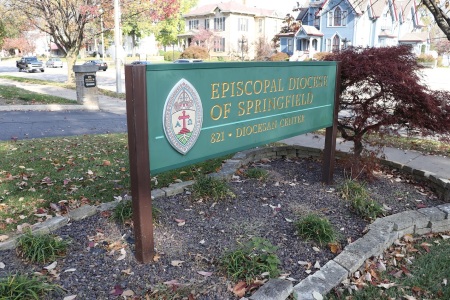
The Episcopal Church’s General Convention approved a measure last July that expanded the right for same-sex couples to marry in all dioceses, even ones where local bishops theologically object.
Known as Resolution B012 and officially implemented on Dec. 2, the new measure overturned a previous resolution from 2015 that allowed dioceses opposed to same-sex marriage to retain their bans on officiating the unions.
While the new resolution still gives clergy the right to refuse to officiate same-sex weddings, bishops opposed to same-sex marriage rites must call on another bishop to provide pastoral support for the couple and a clergy member to perform the ceremony.
“I think this is a really important moment for the church,” said Long Island Bishop Larry Provenzano, who proposed Resolution B012, to the Episcopal News Service in an interview last summer.
“We do this without there having to be one side wins and one side loses. Very much like the theme of the whole convention, there's a great movement for the church to really be the church in this time.”
However, the new resolution has met resistance, specifically from Bishop William Love of the Episcopal Diocese of Albany, New York, one of the dioceses affected by the new measure.
In a lengthy pastoral letter released last November, Bishop Love said same-sex wedding ceremonies will not take place in his diocese.
"Jesus is calling the Church to follow His example. He is calling the Church to have the courage to speak His Truth in love about homosexual behavior — even though it isn't politically correct," wrote Love.
"Sexual relations between two men or two women was never part of God's plan and is a distortion of His design in creation and as such is to be avoided. To engage in sexual intimacy outside of marriage between a man and women, is against God's will and therefore sinful and needs to be repented of, NOT encouraged or told it is OK."
Love also said he believes both his denomination and overall Western society "have been hijacked by the 'gay rights agenda,'" and that pro-LGBT Episcopalians have been "received into believing a lie that has been planted in the Church by the 'great deceiver' — Satan."
Episcopal Church Presiding Bishop Michael Curry, who supports same-sex marriage and leads the denomination, released a statement last November in response to Love's letter, explaining that he was “assessing the implications of the statement and will make determinations about appropriate actions soon.”
A spokesperson for The Episcopal Church told The Christian Post via email on Jan. 2 that there had been no new developments in the dialogue between the national denomination and the Albany diocese.
Then, on Jan. 11, the spokesperson forwarded CP an official statement from Presiding Bishop Curry in which he decided to partially restrict Love's ministry by prohibiting him from "participating in any manner in the church’s disciplinary process in the Diocese of Albany in any matter regarding any member of the clergy that involves the issue of same-sex marriage."
"Nor shall he participate in any other matter that has or may have the effect of penalizing in any way any member of the clergy or laity or worshiping congregation of his Diocese for their participation in the arrangements for or participation in a same-sex marriage in his Diocese or elsewhere," said Curry.
In addition to the Diocese of Albany, the other impacted dioceses include Dallas; North Dakota; Springfield, Illinois; Tennessee; the U.S. Virgin Islands; and two of the denomination's Florida-based dioceses, the Diocese of Florida and the Diocese of Central Florida.
The Christian Post reached out to these dioceses to get their perspective on Resolution B012. A few responded, discussing issues including their opinion of the resolution and if they plan to leave the denomination.
A ‘lesser evil’
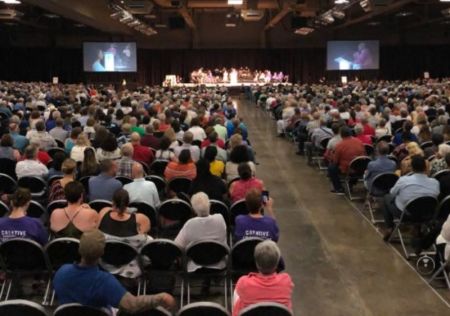
The Rt. Rev. Daniel H. Martins, bishop of the Illinois-based Episcopal Diocese of Springfield, told CP that he considered Resolution B012 to be a “lesser evil.”
“It is preferable to General Convention simply making no provision at all for dioceses that retain the traditional Christian teaching on marriage,” said Martins. “But it deeply undermines the relationship between a bishop and the parishes of that bishop's diocese. It hampers the bishop's ability to be the chief teacher and chief liturgical officer in a diocese.”
Martins described his diocese in central and southern Illinois as “generally quite traditional,” noting that “a solid majority would not be supportive of same-sex marriage.”
“There is one parish that is an exception to this norm. They do not presently have a same-sex couple seeking marriage rites, but they have nonetheless asked me to delegate oversight of them to another bishop who would permit it if and when the time comes,” continued Martins.
The Rt. Rev. George Sumner of the Episcopal Diocese of Dallas, told CP that while he believed Resolution B012 was “flawed,” he also considered it “a good-faith effort to maintain unity amid strong theological difference.”
“We are doing our best to implement it as we are required to do, and three of our rectors have requested to receive alternative episcopal oversight,” said Sumner.
“While we do not agree with the Presiding Bishop [Michael Curry] on the marriage issue, he has been a friend to traditional Episcopalians. Meanwhile, the Book of Common Prayer, our standard of doctrine, remains unchanged.”
The Episcopal Diocese of Florida sent CP a statement regarding the resolution, explaining in their official remarks that despite theological differences with the national church, they are “committed to honoring Resolution B012.”
“The decision to perform such marriages now rests entirely with rectors and priests in charge. Accordingly, the diocese has established a process of collaboration and transparency when a rector or priest in charge chooses to perform a same-sex marriage. When that decision is made, the priest in charge is asked to meet with the bishop,” the diocese said.
“The wardens of the parish will also be invited to the meeting in order that the conversation can be transparent and open to all the leadership of the congregation. After meeting with the priest and wardens, the bishop will be prepared to find another bishop willing to undertake pastoral oversight in accordance with the provisions of B012.”
No ‘critical mass’ to leave
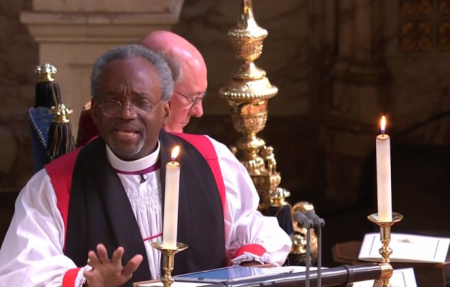
Resolution B012 was the latest in a yearslong trend of The Episcopal Church to become more accepting of homosexuality and same-sex marriage.
In 2003, the church garnered international headlines and controversy when the Rev. Gene Robinson became the first openly gay bishop in the denomination’s history.
In response, large numbers of Episcopalians and congregations within the denomination have left in protest of its theological direction. This has led to a great deal of litigation over who rightfully owns assorted church properties, with the national denomination typically winning in court.
In 2012, the leadership of the Episcopal Diocese of South Carolina voted to leave the national denomination, in part because of theological differences and over alleged mistreatment of its bishop, the Rt. Rev. Mark Lawrence.
The South Carolina Diocese’s departure led to a lengthy legal battle over the regional body’s approximately $500 million worth of property, in which last June the United States Supreme Court allowed a ruling against the departing diocese to stand.
Bishop Martins of the Springfield Diocese told CP that there “is no critical mass or energy here to leave The Episcopal Church, and there never has been,” adding that he speaks “both for myself personally, and for the diocese collectively.”
Bishop Sumner of the Dallas Diocese also expressed opposition to the idea of attempting to leave The Episcopal Church over Resolution B012.
“We in the Episcopal Diocese of the Dallas hold to the traditional doctrine on marriage. But we also believe we have a calling to witness to that teaching within The Episcopal Church, so we have no intention to leave,” he said.
Bishop Love of the Albany Diocese also spoke in his pastoral letter last year about the importance of unity when detailing his opposition to the new resolution.
"There is no doubt The Episcopal Church and now the Diocese of Albany are in the midst of a huge storm that can rip us apart if we are not careful. That is exactly what Satan wants," wrote Love.
"We don't have to play his game. If we focus on what divides us, we will be destroyed. If we focus on what unites us — our Lord Jesus Christ — He will get us through to the other side. I pray the Lord will help us to see one another as He sees us; to love one another as He loves us; to forgive one another as He forgives us."
Nonetheless, Martins did tell CP that he felt there were inherent differences between his diocese and the national church leadership that went beyond just the issue of same-sex marriage.
Martins speculated that the likely divide was based on what he described as the "given-ness" of the Christian faith.
“I am deeply sensible that the faith of which I am a steward as a bishop is something I have received, and is not mine to alter in an attempt to improve it. I am accountable to the witness of scripture and Christian tradition, not the other way around,” said Martins.
“The mainstream of The Episcopal Church seems to see the Holy Spirit behind every new direction they might be inclined to pursue. I am skeptical of that.”










